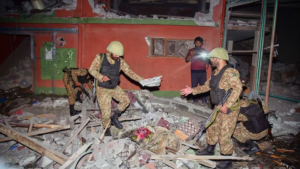The Devastating Toll of Failed Peace Talks: Violence Erupts in Colombia
The recent outbreak of violence in northeast Colombia, resulting in the tragic deaths of at least 80 people, underscores the fragility of peace in the country and the devastating consequences of failed peace negotiations. This surge in violence follows the collapse of peace talks between the Colombian government and the National Liberation Army (ELN), a left-wing rebel group.

The Impact of Failed Negotiations
The ELN, one of the last active rebel groups in Colombia, has a long history of involvement in drug trafficking, kidnapping, and extortion. The failed peace talks aimed to bring an end to decades of armed conflict and pave the way for lasting peace in the region. However, the breakdown of negotiations has emboldened the ELN, leading to a significant escalation of violence.
A Humanitarian Crisis
The recent violence has had a devastating impact on the civilian population. Reports indicate that thousands of people have been displaced from their homes, seeking refuge in nearby towns and cities. The humanitarian crisis is deepening, with many facing shortages of food, water, and essential medical supplies.
The Need for Renewed Peace Efforts
This tragic event highlights the urgent need for a renewed commitment to peace in Colombia. The international community must exert pressure on all parties involved to return to the negotiating table and find a peaceful resolution to the conflict. The Colombian government must also prioritize the protection of civilians and address the root causes of the violence, such as poverty, inequality, and lack of opportunity.
The loss of life and the displacement of thousands of people are a stark reminder of the human cost of armed conflict. It is crucial that all parties involved prioritize the safety and well-being of the civilian population and work towards a lasting peace that brings an end to the suffering of the Colombian people.










